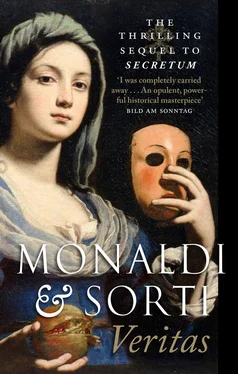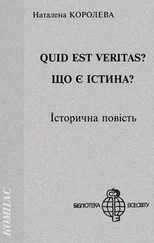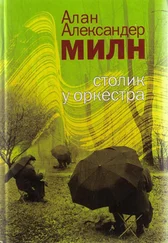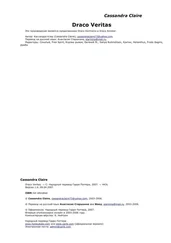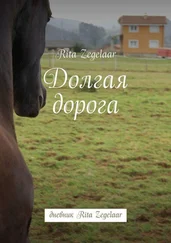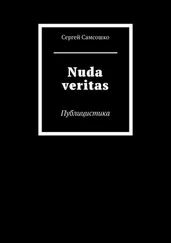Rita Monaldi - Veritas
Здесь есть возможность читать онлайн «Rita Monaldi - Veritas» весь текст электронной книги совершенно бесплатно (целиком полную версию без сокращений). В некоторых случаях можно слушать аудио, скачать через торрент в формате fb2 и присутствует краткое содержание. Жанр: Исторический детектив, на английском языке. Описание произведения, (предисловие) а так же отзывы посетителей доступны на портале библиотеки ЛибКат.
- Название:Veritas
- Автор:
- Жанр:
- Год:неизвестен
- ISBN:нет данных
- Рейтинг книги:3 / 5. Голосов: 1
-
Избранное:Добавить в избранное
- Отзывы:
-
Ваша оценка:
- 60
- 1
- 2
- 3
- 4
- 5
Veritas: краткое содержание, описание и аннотация
Предлагаем к чтению аннотацию, описание, краткое содержание или предисловие (зависит от того, что написал сам автор книги «Veritas»). Если вы не нашли необходимую информацию о книге — напишите в комментариях, мы постараемся отыскать её.
Veritas — читать онлайн бесплатно полную книгу (весь текст) целиком
Ниже представлен текст книги, разбитый по страницам. Система сохранения места последней прочитанной страницы, позволяет с удобством читать онлайн бесплатно книгу «Veritas», без необходимости каждый раз заново искать на чём Вы остановились. Поставьте закладку, и сможете в любой момент перейти на страницу, на которой закончили чтение.
Интервал:
Закладка:
As regards the provenance of the upper classes of the “harvest”, see Giorgio Vercellin, Solimano il Magnifico , Florence 1997, pp. 11–12:
It is impossible to overestimate how much the presence of the Ottomans in Europe during the years around the Reformation influenced the course of history on our continent, starting with the history of the countries between the Rhine and the Danube. The Protestants were the principal beneficiaries of the conflict of Charles V and Ferdinand I with the “Infidels”, so much so that the greatest expert in relations between the Ottoman world and the Christian world, Kenneth Setton, has gone so far as to state (“Lutheranism and the Turkish Peril”, in Balkan Studies , III, 1962) that without the Turks the Reformation could easily have suffered the same fate as the Albigensian Revolt. The Empire’s strength was based on the crucial function of the janissaries, a highly specialised infantry corps created by Sultan Murad I (1362–1398) almost a century before the formation of the first regular army in France. Issuing from the singular institution that was the dev irme [. .] and distinguished by their white headgear, the janissaries were about a thousand in number in the fourteenth century, 5,000 in the following century and 12,000 in the age of Suleiman.”
The description of the Turkish procession in Himmelpfortgasse is closely based on accounts of the visit, which were printed and distributed at the time: Beschreibung der Audientz. . op. cit. , Vienna, 9th April 1711.
The two subsequent audiences of the Agha at Eugene’s palace, respectively on 13th and 15th April 1711, are confirmed in A. Arneth, Prinz Eugen von Savoyen , Vienna 1864, vol. 2, p. 159. Arneth, however, makes a mistake: he says that the Agha left again on 19th April. This is not true. The farewell ceremony with Eugene’s substitute, the Vice-president of War, Count von Herberstein, took place on 16th May and is described in the printed report entitled Die an dem Tuerckischen Abgesandten Cefulah Aga, Capihi Pascia, ertheilte Abschieds-Audienz, mit Beschreibung aller Ceremonien so darbey ergangen, zu Wien, den 16. May 1711.
In addition the supplement of the Corriere Ordinario of 3rd June 1711, Foglio Aggiunto , (p. 91 of the year 1711) reports that the Agha did not leave until 2nd June, “making for Constantinople with five boats assigned to him, and he took with him various things, which he bought here, including some Casks with Pocket-Knives, Scythes, and Sickles, and similar Utensils.”
Further details on the various Turkish embassies to Vienna in those years come from R. Perger and E. D. Petritsch, “Der Gasthof ‘Zum Goldenen Lamm’ in der Leopoldstadt und seine türkischen Gäste”, in: Jahrbuch des Vereines für die Geschichte der Stadt Wien , 55 (1999), p. 147 ff.
During the Turkish siege of Vienna there really was a betrayal by the Armenian Schahin and his servant, as Koloman recounts to the chimney-sweep on the fifth day; see K. Teply, Die Einführung des Kaffees in Wien , Vienna 1980, p. 35 ff.
The story of Kara Mustafa’s lost head is also wholly authentic. Cf. Richard F. Kreutel, “Der Schädel des Kara Mustafa Pascha”, in Jahrbuch des Vereins für Geschichte der Stadt Wien , 32/33 (1976–1977), pp. 63–77. There was actually a second head of a Turk in the city Zeughaus of Vienna, at the address no. 10, Am Hof. It belonged to Abaza Kör Hüseyin Pascha, who fell near Vienna on 24th August 1683 at the Battle of Bisamberg (cf. Kerstin Tomenendal, Das türkische Gesicht Wiens. Auf den Spuren der Türken in Wien , Vienna-Cologne-Weimar 2000, p. 186). The head of this forgotten war hero was kept as a companion to that of the more celebrated Kara Mustafa, and was listed in the catalogues only until 1790. It had probably disappeared from the warehouses before that date, maybe long before, which is to say when it was stolen by Ugonio. .
Ilsung, Hag, Ungnad, Marsili
The essential information on Ilsung is all confirmed by Stephan Dworzak, Georg Ilsung von Tratzberg , typewritten degree dissertation, Vienna 1954.
As Simonis recounts, in 1564 David Hag was appointed on the advice of Georg Ilsung to the post of court paymaster ( Hofpfennigmeister ): cf. Vienna State Archive, Haus-, Hof- und Staatsarchiv, Familienakten, Karton 99, recommendation of Ilsung to Maximilian II of 3rd October 1563.
It really was Ilsung who advised engaging the mysterious healer Magdalena Streicher to treat (or to kill?) the dying Maximilian. This is reported in a letter from the doctor Crato von Crafftheim to Joannes Sambucus published by M.A. Becker, Die letzten Tage und der Tod Maximilians II , Vienna 1877, p. 41. On David Ungnad see Hilda Lietzmann, Das Negebäude in Wien. Sultan Süleymans Zelt — Kaiser Maximilians II. Lustschloss , Munich-Berlin 1987.
It was indeed Luigi Marsili (all the details concerning him are historically accurate) who taught the Viennese to prepare coffee, as the chimney-sweep says. In his leaflet Bevanda asiatica, brindata all’Enimentissimo Bonvisi, Nunzio apostolico appresso la Maestà del’Imperatore etc ., Vienna 1685, the Italian commander explains for the first time how to toast the beans, grind them and mix them with boiling water. The other information on Marsili contained in Atto Melani’s account is confirmed by the numerous other works cited in the bibliography appended to this book.
Bettelstudenten and Chimney-Sweeps
In issue 280 of the Wiennerisches Diarium , which reports the news from 7th to 9th April 1706, and which is held in Vienna’s city library, we discovered a very rare account of the Viennese Bettelstudenten of the age, never unearthed by any historian:
Wednesday 7th April. For some time now it is to be noted that, despite the frequent Edicts published, many wandering students — and others who join them, but who are not truly such — are still to be seen begging night and day in the streets and in front of the churches and houses, even during the school term; these, feigning to study, devote themselves to idleness, to theft and robbery, like the tumult of 17th and 18th January last which broke out inside and outside the city, also at Nussdorf (for which detailed inquiries are still being carried out to identify the culprits and punish them severely) and they tarnish the good name of the other students. This lamentable mendicancy — which is the word for lounging about and succumbing to vice under the pretext of study — must be seriously uprooted: to this end it is necessary to complete the task laid down by the former Resolutions of his Caesarean Majesty; to this aim the Rector, the Caesarean Superintendents and the Consistory of this most ancient University were exhorted to issue a special Edict and to give a final warning to the Bettelstudenten who were roaming around and not studying: within 14 days they must depart from here and go to their homes or anywhere else. Failing to do so they will be seized by the guards and taken ad Carceres Academicos, where suitable punishment will be meted out. Those impoverished students, on the other hand, who daily and continuously apply themselves to their studies, must seek a study grant in the Alumnates or some other means of subsistence; only those who are unable, because of the numbers, to obtain such assistance, or those who have no choice but to seek alms outside lesson times, will be allowed to continue in this fashion until the arrival of new orders. But they must always bear their identity badge, get it renewed every month and show it if requested. Otherwise they will not be recognised as real students, but as vagabond students and will be immediately punished .
Читать дальшеИнтервал:
Закладка:
Похожие книги на «Veritas»
Представляем Вашему вниманию похожие книги на «Veritas» списком для выбора. Мы отобрали схожую по названию и смыслу литературу в надежде предоставить читателям больше вариантов отыскать новые, интересные, ещё непрочитанные произведения.
Обсуждение, отзывы о книге «Veritas» и просто собственные мнения читателей. Оставьте ваши комментарии, напишите, что Вы думаете о произведении, его смысле или главных героях. Укажите что конкретно понравилось, а что нет, и почему Вы так считаете.
